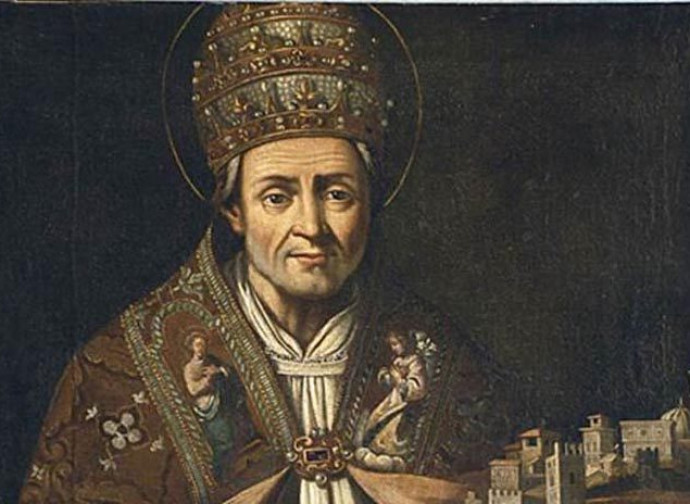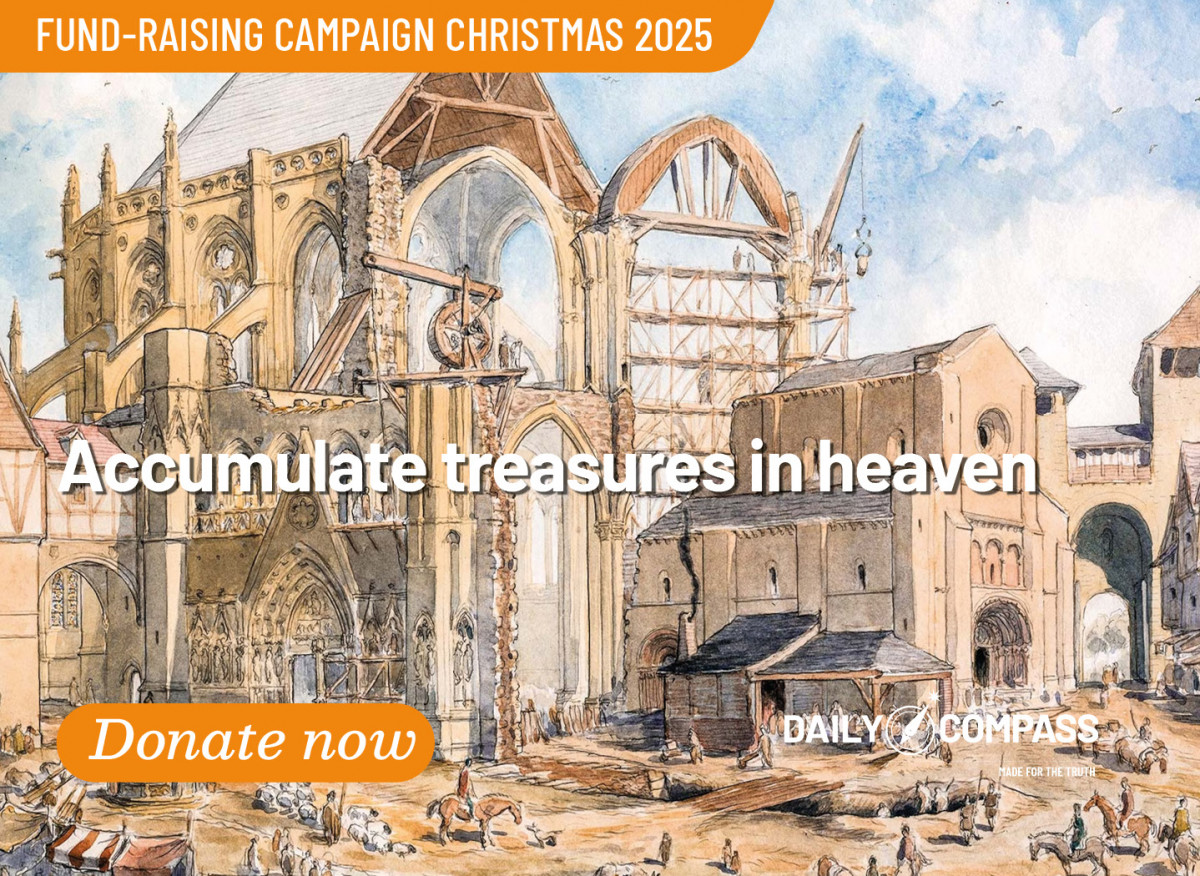Saint Celestine V
Before the incredible succession of events that led to his election as pontiff, he had consecrated his existence to God by living for most of his life as a hermit.

Before the incredible succession of events that led to his election as pontiff when he was already 85 years old, Saint Celestine V (c. 1209-1296), born Pietro Angelerio, known as Pietro da Morrone, had consecrated his existence to God by living for most of his life as a hermit.
The penultimate of the 12 children of two peasants Pietro was attracted to the ascetic life from his youth. After his experience in a Benedictine abbey, he turned to contemplation of God in solitude: he went from one hermitage to another and, around the age of thirty, retired to a cave on Mount Morrone (hence the name given to him by his contemporaries). He interrupted his hermitage only to prepare for his ordination to the priesthood, which took place in Rome. After his ordination he resumed his contemplative life on the mountains of Abruzzi.
The fame of his holiness attracted many disciples. For this reason Pietro decided to found a congregation, whose members were originally called “Brothers of the Holy Spirit” (from the name of one of the hermitages he founded) and after the canonization of their founder they were called “Celestines”. Urban IV first approved the new community in 1263, recognizing it as a branch of the Benedictine Order. In the winter of ten years later, in view of the Second Council of Lyons (which aimed, among other things, to limit the proliferation of new religious institutes), Pietro travelled on foot to the French city to speak with Gregory X. The Pope not only confirmed the congregation but asked the saint to celebrate Mass before the other Council Fathers because “no one was more worthy”.
His congregation expanded to about 600 members, including monks and oblates, divided among dozens of monasteries. Pietro, who observed Lent four times a year, led his disciples as long as he could. Around 1280, now in his old age, he entrusted the helm to a confrere and returned to live as a hermit between the Majella and Morrone mountains. It seemed that his earthly life was to end on those mountains, but instead something unthinkable was about to happen. On 4 April 1292 Nicholas IV died and in the same month the Conclave, then composed of only 12 cardinals, met for the election of the new pope. First the divisions among the cardinals, then an epidemic of the plague, which killed one of them, prolonged the conclave out of all proportion: two years later, the pontifical see was still vacant. At that juncture pressure was added from Charles II of Anjou, who needed papal backing for an agreement with the Aragonese king.
Pietro himself wrote to the Dean of the College of Cardinals, prophesying severe divine punishment if they did not hurry to elect the pope. The cardinals finally agreed on his name. They sent messengers to Mount Morrone to obtain Pietro's acceptance. One of them reported that he wore “a coarse cassock” and appeared as an “old man, astonished and hesitant at such unexpected news”. With visible suffering, after hearing that he would commit mortal sin if he refused, the hermit announced that he accepted the honour. On 29 August 1294 he received the papal tiara and assumed the name of Celestine V. His pontificate, immediately influenced by the interference of Charles II of Anjou and some men of the curia who were not interested in eternal goods, lasted only three and a half months.
Apart from granting the “Celestinian Forgiveness”, an indulgence precursor of the Jubilee, Celestine, dropped at the age of 85 into a situation in which he was out of his depth, made some unfortunate decisions. But he realized the disorder reigning in the Church: “My God, while I reign over souls, here I am losing mine,” he uttered disconsolately. He asked if it was possible under canon law to renounce the Petrine ministry for legitimate reasons. He was told that it was, and on 13 December 1294 he read his renunciation. For this reason many critics have identified in him the character referred to by Dante (“he who made for cowardice the great refusal”), but it is clear that Celestine acted in a spirit of true humility and love for the Church. He lived his last months locked up in a castle, because his successor Boniface VIII feared that his rivals might contest Celestine's abdication and use him for a schism. He returned to the Father's house singing the Psalms. His cause for canonization was initiated by Boniface VIII himself. And it ended - after the testimonials of hundreds of witnesses - under Clement V, who proclaimed him saint in 1313.

